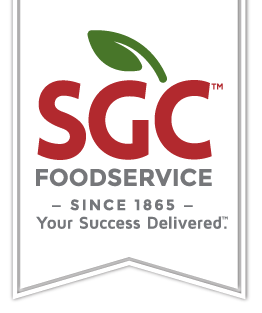Plant-based alternatives have revolutionized the culinary landscape, offering a diverse and delicious array of options for those seeking to reduce or eliminate animal products from their diet. With advancements in food technology and a growing demand for sustainable and compassionate choices, plant-based alternatives have gained significantly popular. Let’s exploring nutritional value, culinary versatility, and the positive impact these plant-based alternatives have on personal health and the environment.
The Rise of Plant-Based Alternatives
Plant-based alternatives have witnessed a surge in popularity due to various factors. Concerns over animal welfare, environmental sustainability, and personal health have led individuals to seek alternatives to traditional animal-based products. Plant-based alternatives provide an opportunity to enjoy familiar tastes and textures while aligning with ethical and sustainable values. As more people embrace the benefits of plant-based eating, food companies and chefs have responded by developing innovative and flavorful alternatives to satisfy the demand. Since more and more customers are searching for these plant friendly items, it is the perfect opportunity for restaurants to make this stand out in their business. Calling it out on menus are very important, to grab the attention that those types of foods can be ordered there.
Nutritional Value of Plant-Based Alternatives
Plant-based alternatives offer a wealth of nutrients without the cholesterol, saturated fats, and hormones often associated with animal products. Many plant-based alternatives are fortified with vitamins and minerals, providing a balanced nutritional profile. For instance, plant-based milks fortified with calcium and vitamin D are excellent alternatives to dairy milk. Plant-based meat substitutes often contain similar levels of protein while being lower in saturated fat and cholesterol. Additionally, plant-based alternatives offer dietary fiber, essential vitamins, and phytonutrients that support overall health and well-being. These alternatives have similar nutritional value, and they are sustainable to the planet which results in a major win for consumers.
Culinary Versatility
Plant-based alternatives have come a long way in terms of culinary versatility. From plant-based milks and cheeses to meat substitutes and egg replacements, the options are expanding rapidly. Plant-based milks made from soy, almond, oat, and other sources provide creamy alternatives for cooking, baking, and enjoying with cereal. Plant-based cheeses offer a variety of flavors and textures, allowing for creative applications in sandwiches, pizzas, and appetizers. Meat substitutes made from soy, pea protein, or mushrooms mimic the taste and texture of traditional meat, making them ideal for burgers, stir-fries, and other savory dishes. Egg replacements derived from ingredients like chickpea flour, flaxseeds, or aquafaba provide binding and leavening properties in baking recipes. The culinary versatility of plant-based alternatives opens a world of possibilities for creating delicious and satisfying meals. There are many food trends going on that are using different style of flours in their baking to showcase the greater nutritional value and to make a healthier version of a traditional dish. Trends don’t always have to come from social media, the foods trends truly happen in the restaurant.
Environmental Impact
The environmental impact of animal agriculture has prompted many to seek plant-based alternatives. The production of plant-based alternatives generally requires fewer natural resources, such as land, water, and feed, compared to conventional animal farming. Plant-based alternatives significantly reduce greenhouse gas emissions, deforestation, and water pollution associated with animal agriculture. By choosing plant-based alternatives, individuals contribute to a more sustainable food system and help combat climate change. Incorporating these alternatives into our diets allows us to make a positive impact on the planet. Many consumers want to improve their carbon footprint, and this is one way to do that.
Overcoming Taste and Texture Challenges
One common concern about plant-based alternatives is the ability to replicate the taste and texture of traditional animal-based products. However, advancements in food technology have resulted in remarkable progress. Plant-based alternatives now boast flavors, textures, and mouthfeel that closely resemble their animal counterparts. Continued innovation and research in the field of plant-based alternatives are continually improving the sensory experience, making the transition easier and more enjoyable for individuals. With the two becoming very similar in taste and texture, the popularity of these plant-based alternatives will continue to grow and shape more and more lifestyles.
Incorporating Plant-Based Alternatives into our Diet
Incorporating plant-based alternatives into one’s diet can be a gradual and exciting journey. Consumers would begin by identifying the animal-based products they would like to replace and explore the plant-based alternatives available. Experiment with different brands, flavors, and textures to find their preferences. They can Incorporate plant-based alternatives into familiar recipes or explore new culinary horizons by trying plant-based recipes from cookbooks, websites, or food blogs. Additionally, when they are dining at restaurants that offer plant-based options, they are expanding their culinary repertoire and provided with inspiration for home cooking.
Plant-based alternatives have emerged as a transformative force in the culinary world, offering nutritious, delicious, and sustainable options. With their nutritional value, culinary versatility, and positive environmental impact, plant-based alternatives provide a gateway to a healthier and more compassionate lifestyle. By embracing these alternatives, we can not only nourish our bodies but also contribute to a more sustainable and ethical food system. Let plant-based alternatives be the catalyst for positive change to diets, benefiting both our well-being and the planet we call home. By no means will meat choices be going away and be frowned upon by choosing to consumer, but consumers are given another outlet of opportunity when dining.

_km1st5zu.jpg)